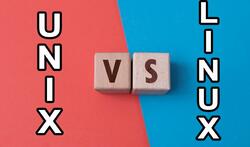UNIX vs Linux: What's the Difference
As we conclude this exploration of UNIX and Linux, we find ourselves in awe of the vast differences that define these two operating systems. UNIX, with its proprietary legacy, continues to influence industries that require steadfast performance. In contrast, Linux's open-source foundation has ushered in a new era of collaboration, flexibility, and innovation. The key to making an informed choice between UNIX and Linux lies in understanding their respective strengths and weaknesses, and how they align with your technological needs. With both systems constantly evolving, there's no better time to delve deeper into the world of operating systems and the endless possibilities they offer.
The ongoing evolution of UNIX and Linux is a testament to the enduring power of innovation and collaboration. While UNIX laid the groundwork for modern operating systems, Linux harnessed the potential of open-source philosophy to democratize software development. As we navigate an increasingly complex digital landscape, the journey through UNIX and Linux serves as a reminder of the transformative nature of technology, and the limitless potential that lies ahead.

